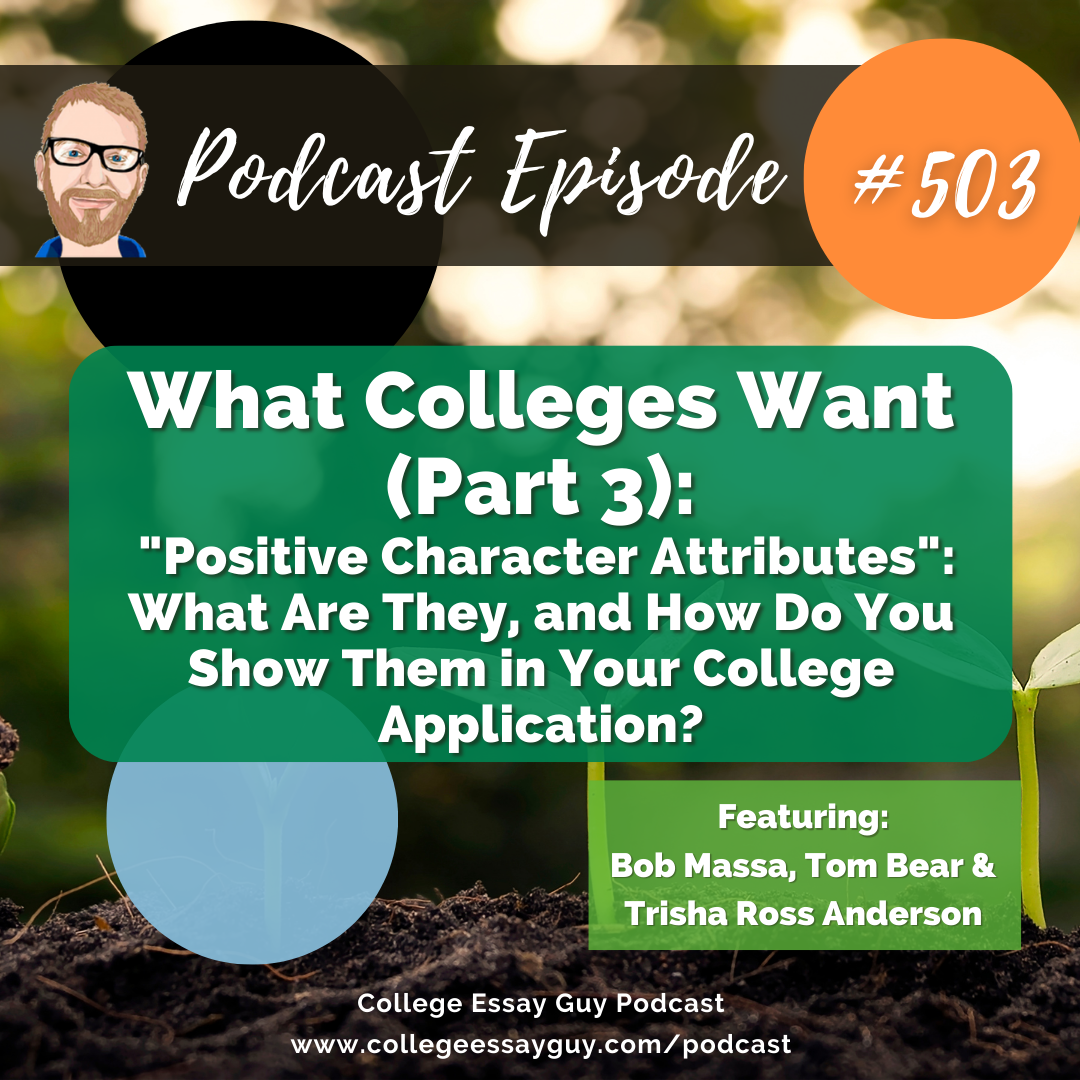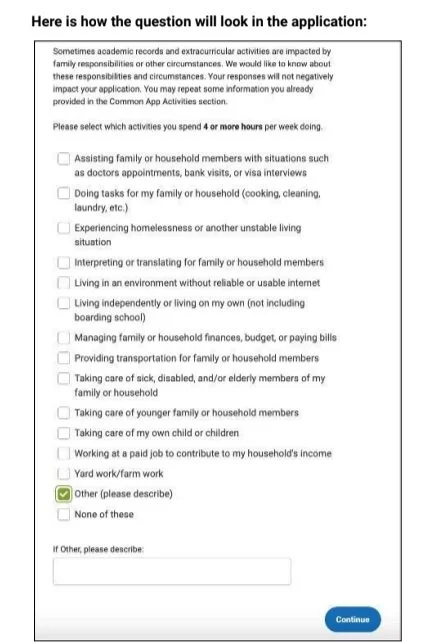Listen Here
SHOW NOTES
Today’s episode is all about writing letters of recommendation for teachers and counselors. Continuing our series on What Colleges Want, Tom Campbell (CEG’s Community Manager) is joined by Hanah Lim (CEG’s Director of Workshops and a former high school English teacher), where they provide their tips, tricks, and hacks to help you write more efficient and effective letters for your students.
Tom and Hanah discuss:
How long should letters be and what format works best?
How do letters differ between counselors and teachers?
What details might be helpful to include, and what should be avoided?
How can teachers and counselors efficiently gather more information about their students to include in the letter?
We hope you enjoy the episode!
In case you missed it: Students and families, be sure to check out last week’s episode with Ayesha King to learn about what goes into a letter of recommendation, how they are evaluated by colleges, and who students should consider asking.
Hanah Lim is the Director of Workshops at College Essay Guy and a former public high school English teacher. She oversees College Essay Guy's essay and application workshop team and organizes speaking events and college application and essay workshops for students at schools and organizations in the US and around the world. She has presented college essay workshops to thousands of students across diverse settings, including community-based organizations, public, international, and independent schools. She also worked as a college consultant for students in Bangkok, Thailand, directed SAT prep centers in Irvine, California and worked with non-profit groups and as an AVID teacher and coordinator to help close the achievement gap. She holds a B.A. in English with an emphasis in Education from California State University of Long Beach. Hanah finds joy in watching musicals, visiting Disney parks with her husband, and playing with her two cats.
Play-by-play
2:19 - Hanah and Tom share their school contexts for writing their letters of recommendation
5:40 - How much weight do letters of recommendation hold in admission?
10:25 - What is the best practice for the length of a letter of recommendation for college?
10:57 - How should it be formatted?
14:03 - Should a letter be customized for each college?
15:38 - What else is submitted with the student’s application from the high school?
16:19 - What is covered in the school profile?
19:44 - What is covered in the counselor’s letter?
25:25 - What is covered in the teacher's letter?
30:46 - How does the Supreme Court ruling on race-conscious admission affect letters of recommendation?
36:29 - What generally might be not as helpful to include in the letter?
40:38 - Hanah shares her process for writing letters of recommendation
49:18 - Tom shares his process for writing letters of recommendation
59:01 - How to incorporate a student’s essay brainstorming work
1:01:37 - How could generative AI be utilized in the recommendation writing process?
1:07:08 - Closing thoughts
ResourceS
Continued Learning
On-Demand Webinar: How to Write Better Recommendations in Less Time
How (and Why) to Uplevel Your School Profile Post-SCOTUS (College Essay Guy)
CEG Podcast Episode 507: What Colleges Want (Part 7A): Recommendation Letter Crash Course for Students and Families
Sample Recommendation Letters
Junior Questionnaires/Recommendation Request Form Questions
Helpful Student Brag Sheet Questions for Teacher Letters of Recommendation (Johns Hopkins University)
Working with Recommenders and Advisors (several brag sheets from Common App Ready)
College Essay Guy's 100 Brave and Interesting Questions (inspiration for your junior survey/questionnaire)
Equity Resources
Avoiding Gender Bias in Reference Writing (University of Arizona)
Do’s and Don’ts of Writing Recommendation Letters | Center for Research and Fellowships (Georgetown University)
Best Practices for Reading and Writing Letters of Recommendation (Lehigh University)
Gender Bias Calculator (TomForth.Co.Uk)
Gender-Bias calculator (Github)
Bias-Free Letters of Recommendation: MD Education: Feinberg School of Medicine (Northwestern University)
Efficiency Resources
Google “Save As” Form Publisher (autofills student questionnaire responses from a spreadsheet onto your school letterhead)
AI Recommendation Writing Resources (2023 NACAC Presentation)
2022-23 College Recommendation Requirements (College Transition)











